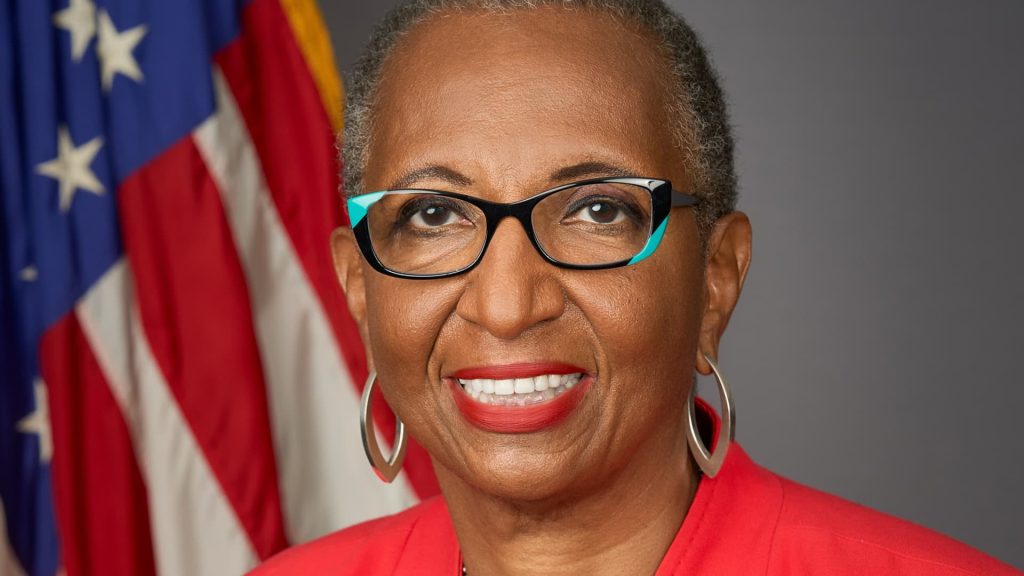A recent ruling by a federal judge has reversed the firing of former National Labor Relations Board (NLRB) chair Gwynne Wilcox, a landmark decision highlighting the limitations of presidential power. The judge asserted that the President cannot arbitrarily dismiss NLRB members, emphasizing that governance must adhere to the law and the spirit of democratic principles. This decision has implications not only for Wilcox but also for the broader integrity of independent regulatory agencies in the U.S.
| Article Subheadings |
|---|
| 1) The Context of Wilcox’s Firing |
| 2) Key Aspects of the Court’s Ruling |
| 3) Implications for Presidential Authority |
| 4) Reactions from Legal Experts and Advocacy Groups |
| 5) Future of the NLRB and Labor Relations |
The Context of Wilcox’s Firing
The firing of Gwynne Wilcox, the first Black woman to serve on the National Labor Relations Board, came during a turbulent political climate in January 2021. Donald Trump, resuming his presidency after a contentious election, dismissed Wilcox alongside another key NLRB member just days after his inauguration. This choice set off a legal battle when Wilcox filed suit against her termination, asserting it violated federal law governing the powers of the President regarding independent agencies. The NLRB, established by Congress in 1935, plays a crucial role in ensuring fair labor practices in the United States.
Key Aspects of the Court’s Ruling
U.S. District Court Judge Beryl Howell ruled that the President does not possess unlimited authority to terminate members of the NLRB. In her scathing judgment, she articulated that, “an American president is not a king,” underscoring the checks and balances embedded in the Constitution. Howell highlighted that Trump’s interpretation of his power was fundamentally flawed, stating that agency heads must not solely align with the President’s objectives. Instead, they are expected to operate autonomously to uphold the law and serve public interest. This ruling reinforces the notion that federal officers possess rights under the law that protect them from arbitrary dismissals.
Implications for Presidential Authority
The implications of the ruling extend beyond Wilcox’s individual case and pose significant questions about the scope of presidential powers. Howell’s decision sets a precedent for the boundaries of authority over independent federal agencies, like the NLRB. Legal experts analyze that this ruling could impede future presidents from unilaterally dismissing appointees without substantial legal grounds. In addressing the constitutional context, Howell remarked that an image of the presidency as a “king” or “dictator” contradicts the mandate established by Article II of the Constitution, which delineates the executive power of the presidency.
Reactions from Legal Experts and Advocacy Groups
Legal experts and advocacy groups have hailed this ruling as a significant victory for the integrity of independent agencies and a safeguard against overreach from the executive branch. Deepak Gupta, Wilcox’s attorney, described the court’s verdict as a “decisive victory” that firmly rejects the notion of excessive presidential power. Advocacy groups supporting labor rights see this ruling as a reaffirmation of the NLRB’s essential mission to protect workers and ensure fair labor practices. While the White House has yet to comment publicly on the ruling, the decision has drawn attention among scholars and practitioners interested in the intricate relationship between executive power and regulatory independence.
Future of the NLRB and Labor Relations
The ruling is poised to influence not only Wilcox’s future but also the broader trajectory of labor relations in the U.S. HR professionals and labor activists are watching closely as the NLRB navigates its roles and responsibilities under renewed scrutiny. Wilcox’s reinstatement could reinforce the credibility of the NLRB in the eyes of the public and employers alike, as it upholds impartiality in the enforcement of labor laws. How the NLRB functions going forward, particularly in the context of upcoming labor negotiations and policy considerations, remains essential for both labor unions and management stakeholders.
| No. | Key Points |
|---|---|
| 1 | Judge Howell ruled that the President cannot arbitrarily terminate NLRB members. |
| 2 | Wilcox is the first NLRB member to be fired by a sitting president. |
| 3 | The ruling reflects significant checks on presidential power established in the Constitution. |
| 4 | Legal experts view this judgment as a victory for independent regulatory agencies. |
| 5 | The NLRB’s role in labor relations may be significantly impacted by this ruling. |
Summary
The recent federal court ruling reinstating Gwynne Wilcox notably constrains the extent of presidential authority over independent agencies such as the NLRB. It validates the legal protections afforded to agency members, ensuring they can operate without undue political influence. This development is crucial for maintaining the integrity of labor relations in the U.S. and emphasizes the importance of adhering to the rule of law in the functioning of government. The balance of power between the presidency and independent regulatory bodies remains paramount for upholding democracy.
Frequently Asked Questions
Question: What does the recent ruling imply for the NLRB’s independence?
The ruling underscores the NLRB’s independence from presidential influence, affirming that members cannot be terminated at will without legitimate legal grounds, which enhances the board’s credibility and integrity in enforcing labor laws.
Question: Who is Gwynne Wilcox and why is her case significant?
Gwynne Wilcox is the first Black woman to serve on the NLRB, and her case is significant as it highlights issues of racial representation, gender equity, and the lawful boundaries of presidential power in an independent agency.
Question: How might this ruling affect future presidential appointments to the NLRB?
This ruling sets a precedent that could limit future presidents’ ability to manipulate independent agencies by removing appointees simply for political alignment, thus fostering greater stability and continuity within the NLRB.
